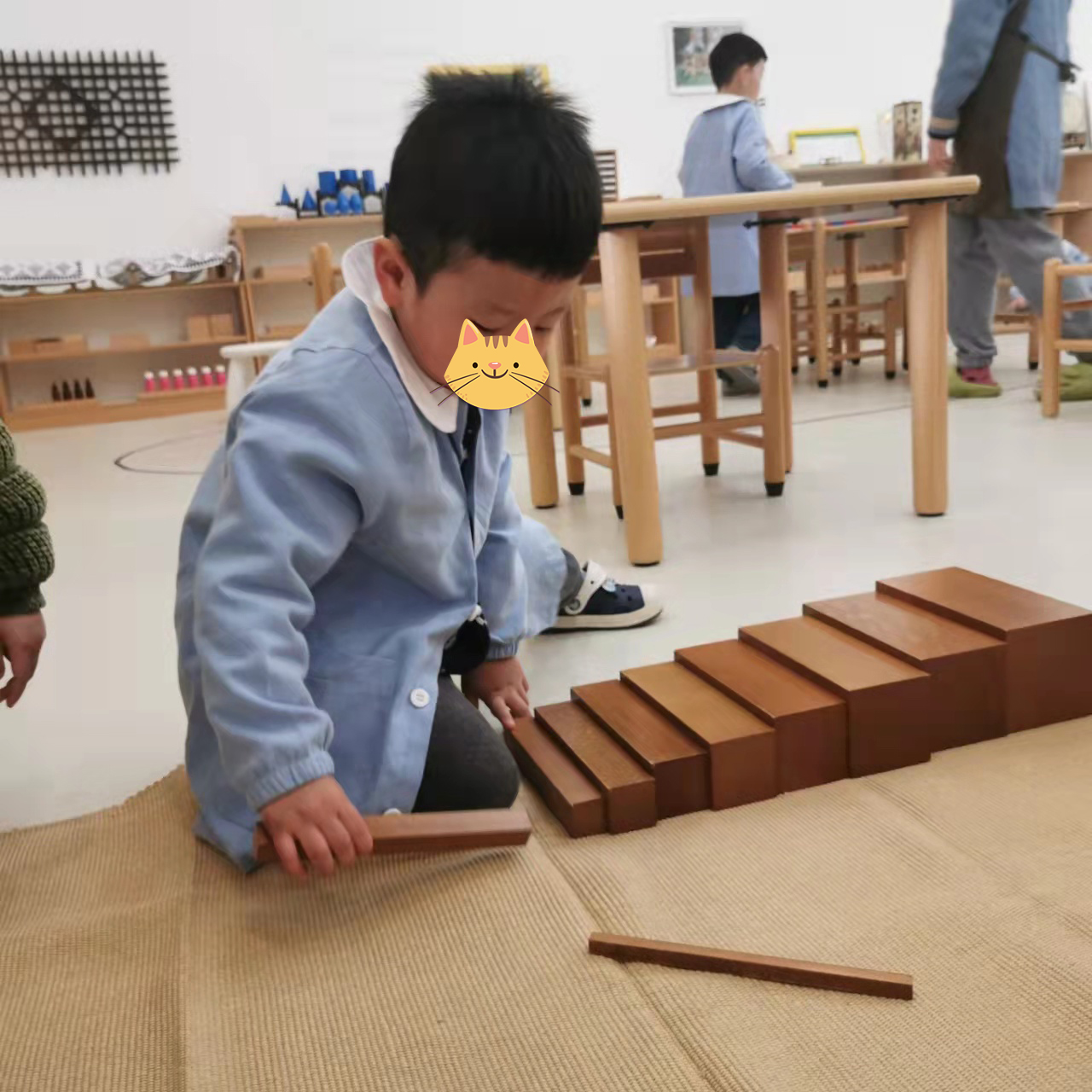在人的認(rèn)知發(fā)展過(guò)程中����,兒童唯一能依靠的就是感官�����,假如聞不到、看不到、聽不到、摸不到����,人就很難學(xué)會(huì)世界上各種物質(zhì)的特質(zhì)����,他的知識領(lǐng)域就有所限制�����。
——瑪麗亞·蒙特梭利
In the process of human cognitive development, the only thing children can rely on are their senses. If one cannot smell, see, hear or touch, it is difficult for one to learn the characteristics of various substances in the world, and his/her field of knowledge is limited.
——Maria·Montessori
兒童有著他自己的人格���,他自身具有創(chuàng)造精神的美和尊嚴(yán)�����。在蒙特梭利教育中������,感官區(qū)教育就是孩子運(yùn)用感覺器官無(wú)限探索的地方;「粉紅塔」與「棕色梯」都是非常經(jīng)典的教具������。
Children have their own personalities, their own creative spirit of beauty and dignity. In Montessori education, sensory area of a Montessori classroom is a place where children can develop their cognitive functions in a natural way, while 「Pink Tower」 and 「Brown Stair」 are two traditional materials in in this area.

粉紅塔讓孩子學(xué)會(huì)從大到小的排序����,發(fā)展手眼協(xié)調(diào)能力���。棕色梯是從粗到細(xì)的排序���,發(fā)展孩子的肌肉控制力�����,他們都是為數(shù)學(xué)做間接預備�����。
Pink Tower allows children learn to rank from large to small and to develop hand-eye coordination. Brown Stair allows children learn to grade from thick to thin and to develop their muscle control. Both of these two Montessori materials are indirect preparation for children’s mathematical skills.
那如果孩子們將「粉紅塔」和「棕色梯」兩(liǎng)樣經(jīng)典教具碰撞在一起會(huì)擦出什麼樣的火花呢?
So what kind of spark does it create when we combine 「Pink Tower」 and 「Brown Stair」?

孩子們的創(chuàng)造能力和思維能力你能理解嗎?在他們建構(gòu )粉紅塔和棕色梯的過(guò)程中������,通過(guò)造型的變化和顏色的對(duì)比���,同時(shí)做配對(duì)和序列的練習(xí)�����,加深對(duì)漸變的分析能力…
In the process of construction, children can enhance the ability to analyze gradients by the changing shapes and colors of 「Pink Tower」 and 『Brown Stair」, as well as by doing matching and ordering exercises.

無(wú)論是成人還是孩子都是一樣的����,學(xué)習(xí)一個(gè)新的知識或者事物的過(guò)程�����,都需要我們反覆的練習(xí)����,使其不僅能更加嫻熟地使用雙手�����,更是對(duì)感官的刺激����。
No matter adults or children, the process of learning a new knowledge requires repeated practice, so that we can use our hands more skillfully and stimulate our senses.
我們能做的就是尊重����,尊重孩子從內(nèi)心發(fā)出的聲音����,給予孩子適合的環(huán)境、更多的時(shí)間和自由���,相信會(huì)讓成人別樣的驚喜�����。
What adults can do is to respect children’s needs and their voices from heart, provide children an appropriate environment, more time and freedom. We should always believe that children will surprise us.